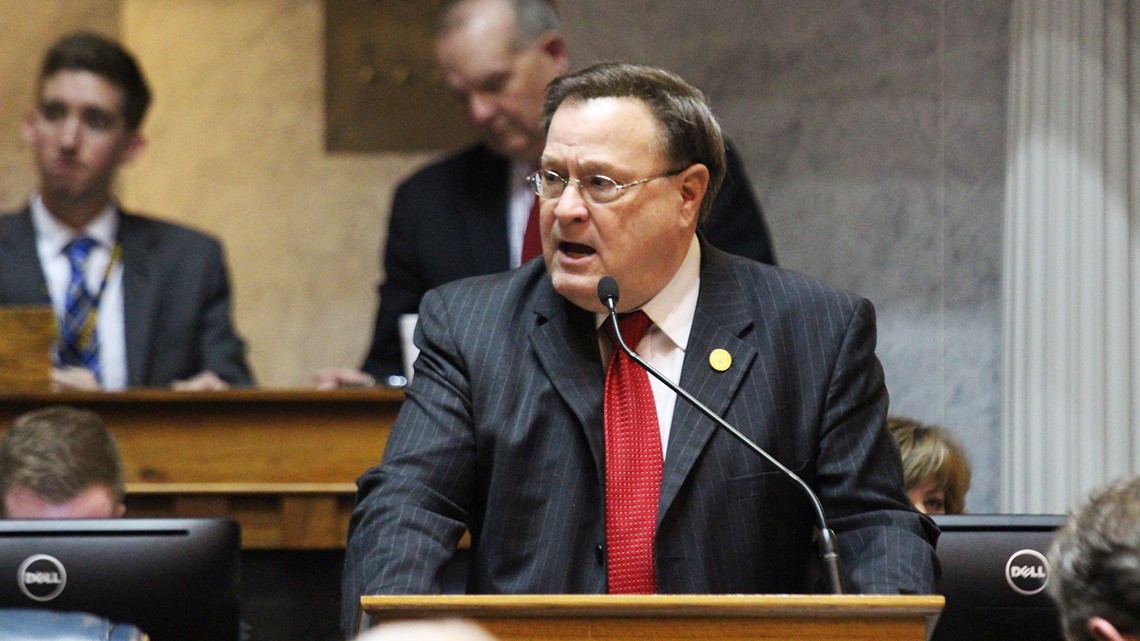INDIANAPOLIS (Statehouse File) — Melanie Davis is transgender, and one night while she walked to her former job in Indianapolis, two men yelled hateful slurs at her. Then, things took a turn when one of the men pointed a gun at her.
“After I turned the corner, I heard a shot, and then he laughed,” Davis said. “I don’t know if it was just something to scare me, but you know, mission accomplished.”


Davis told the same story last year to a panel of senators in a committee hearing for a hate crime bill, which was later dropped. She had told them she didn’t want transgender people to live in fear wondering, “Will I be next?”
Davis has now lived in Bloomington for a number of years where she feels more accepted, she said, but she is telling her story again because Indiana still needs hate crimes legislation.
“Culture is changing among people, even if legislatively it’s not,” Davis said.
Indiana is one of five states without a hate crimes law, which Gov. Eric Holcomb, a Republican, has said he wants to change this year with one that mirrors his administration’s anti-bias regulations. They specifically protect people in categories ranging from religion and race to gender and sexual orientation.
Twenty-eight of the 45 states with such a law do not specifically protect transgender people like Davis, and Indiana may be headed in that direction.
Lawmakers in the House and Senate have collectively filed 10 bills on bias—or hate—crimes. They differ in language, but two bills have been criticized for leaving out a specific list of victim characteristics that judges could cite in increasing criminal penalties against perpetrators. A similar law was overturned in Georgia after the courts said it was too vague.
With about two weeks before the final deadline for the House or the Senate to consider new legislation, there have been no hearings scheduled for any of the bills.


House Speaker Brian Bosma, R-Indianapolis, said the House is waiting for the Senate and President Pro Tempore Rodric Bray, R-Martinsville, to take the first step, but Bray has yet to do anything to move the four bills in his chamber.
The question on whether to support a more generic bill or one with a specific list has lawmakers split, but not along party lines.
Holcomb is pushing for lawmakers to act. Although he advocates for a bill with a list of those who could be victims of a hate crime, his spokesperson declined to say whether he would veto generic legislation proposed by some Republicans in the General Assembly.
Sen. Mike Young, R-Indianapolis, represents the segment of his party that resists identifying specific characteristics, a view that also appears to be shared by Bosma and Bray. They have said they see a broader bill as a compromise.
“If you make a list, that’s a finite list, then by definition, you’re leaving groups out,” Bray said.


Young authored Senate Bill 599, which does not include a list, and his reason for adding another bill, he said, is because he wanted broader legislation that covers everyone.
“I know that the transgender identity … there’s not a whole lot of people in society that would fall into that category,” Young said. “But there’s a lot of people in politics…the people who wear the MAGA (Make America Great Again) hat who have been harmed and hit and battered, but they’re not covered.
“My thought is everybody should be covered equally.”
Young also said the aggravating circumstance for a bias crime is already covered under Indiana law in a state Supreme Court decision, Witmer v. State, which upheld a longer prison sentence because the judge determined the crime was committed with bias toward the victim.
“That’s my point, we don’t need one. My point is we already have one,” Young said. “If it’s something so we can be on the one of 46 instead of one of five, I was trying to get something that would do that.”
Senate Minority Leader Tim Lanane, D-Anderson, and some of Young’s Republican colleagues disagree.
Lanane has called the general bills like Young’s a “bunch of legal gobbledygook” because the legislation uses the same language as the Witmer case, which already isn’t used. He questioned why it was so hard to include the people who need protection the most.
Republican Sens. Mike Bohacek of Michiana Shores and Ron Alting of Lafayette authored Senate Bill 12, which includes a lengthy list of characteristics, including race, religion, sexual orientation and status as a public official to name a few.
Bohacek said the relying on the Witmer case wouldn’t work because it is not specific enough for judges to follow.
“Judges like to be able to quote to things and say, ‘Here’s the place in the code, it’s specific, we understand the legislators’ intent,’” Bohacek said. “That’s a part of the bill that’s not negotiable.”
He did not directly say whether he would vote against Young’s bill but said a bias crimes bill is not a bias crimes bill without a list.
This year, the four bias crimes bills in the Senate have been assigned to the Rules and Legislative Procedure Committee, which is chaired by Bray, who said he favors the more generic approach.
Frustrated that lawmakers may pass a bill that doesn’t specifically protect her or other groups that experience hate, Davis said the lists have to be included in order for judges to find the bias and combat it.
She added, “What is the point of a bias crime if you don’t define the bias?”
This content was reproduced from TheStatehouseFile.com, a news service powered by Franklin College.
